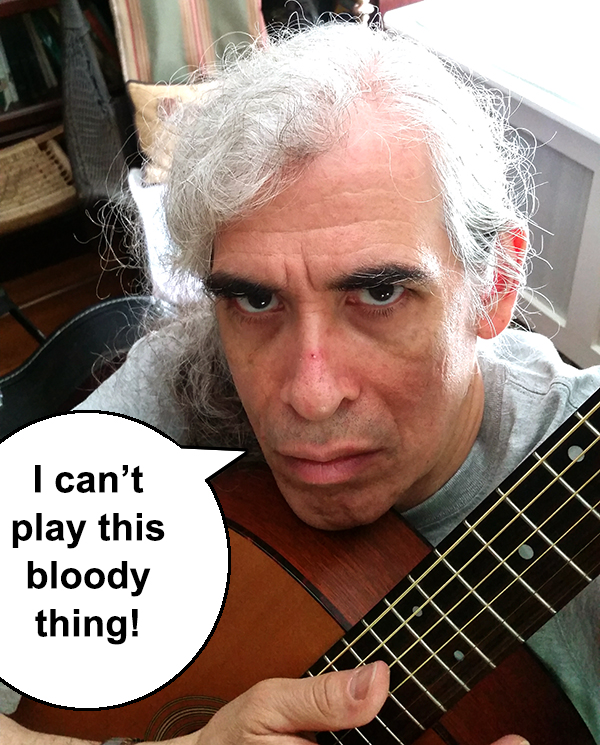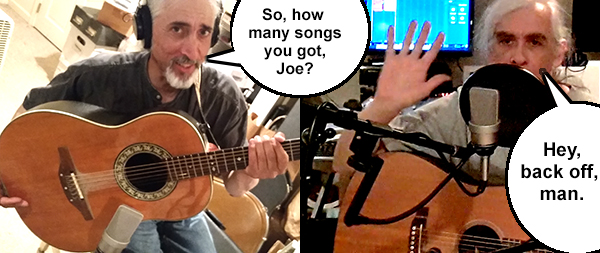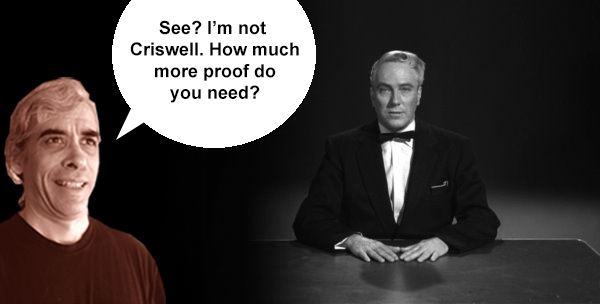Yes, that’s a whole different approach. I never thought of doing it that way. Yes, very innovative – thank you for the suggestion. Of course I’ll give you credit. I’ll write it in the sky if you insist. You insist? Hoo boy.
Lesson number one for you young songwriters out there: never take advice on your craft from a robot. Marvin (my personal robot assistant) has been putting his two cents in a lot lately, and frankly, it’s worth every penny. We’ve been trying to pull together some new songs for our next project (another word for “album”), and he’s suggesting to me that I should start every song on kazoo.
It’s all about process. Sometimes.
Now, everyone has his/her process. We’ve discussed ours on this very blog. Some songwriters have a favorite instrument, some a favorite room. Some like to start with the music, then the lyric, others the opposite, and some a random mix. Marvin obviously prefers the kazoo. I think it’s fair to say that my brother Matt did at one point in his career. The thing is, Marvin doesn’t need a kazoo to make a kazoo-like sound. He’s got a sound generator that can imitate everything from a Blue Whale to a mosquito. (You should hear his 1993 Buick Regal. It’s spot on!)
My process? Well, mostly it’s not doing anything. But when I do write songs, I typically start with a blank piece of paper. The paper stays blank for a few weeks, until I awake from a nightmare at 2 a.m. and start scribbling randomly. The next morning, I will puzzle over the illegible nonsense I scrawled out the night before, then ball up the paper and chuck it in the trash. That’s usually when I pick up a guitar. Don’t try this at home!
Those instruments!
Some of you might think that it’s better to write songs on an instrument you know. I am living proof that that’s not necessary. The fact is, I don’t know any instruments all that well. Sure, I’m on a first-name basis with a guitar or two, and my piano is a childhood friend, but that doesn’t count for much. Like many songwriters, I reach for the closest instrument in the room and start noodling. (Pro tip: If I stumble on something good, it usually means it’s been used before.)
Worried about plagiarism? Remember what Woody Guthrie said:
“I never waste my high priced time by asking or even wondering in the least whether I’ve heard my tune in whole or in part before. There are ten million ways of changing any tune around to make it sound like my own.“
Yeah, I’ll take some of that. You might also want to remember what Tom Lehrer said:
Plagiarize
Let no one else’s work evade your eyes
Remember why the good lord made your eyes
So don’t shade your eyes
But plagiarize, plagiarize, plagiarize

A case of projection
Is this a roundabout way of saying that we have an album project in the works? Well, dear reader, that would be telling! After all, we have about a hundred Ned Trek songs in the can, waiting to be released in some form, including about seven or eight that have never seen the light of day. And then there’s all that new material from Matt (a.k.a. the songwriting machine of Central New York).
Damn it, man … we have so many irons in the fire, there’s nothing left to do the ironing with. Now we have to throw all those wrinkled clothes in the fire with ’em.






